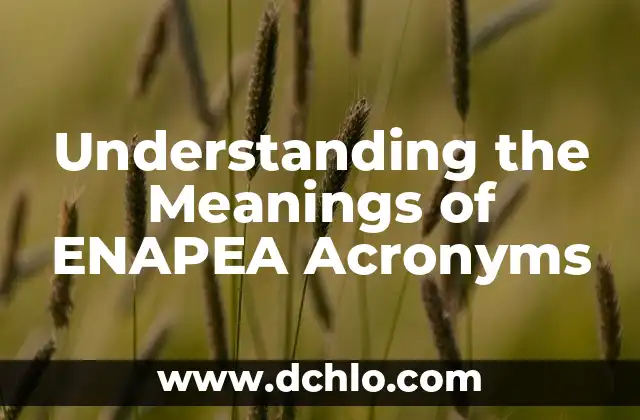The phrase Ay Carmela is deeply rooted in Spanish culture, particularly associated with the song Ay Carmela, which became an anthem during the Spanish Civil War. Within this context, the name Sabina holds a special significance, often symbolizing aspects of Spanish identity and resistance. This article delves into the meaning of Sabina, exploring her role and symbolism in the broader narrative of Ay Carmela.
What is the Meaning of Sabina in ‘Ay Carmela’?
Sabina, in the context of Ay Carmela, is a name that carries historical and cultural weight. It is often associated with a female figure who embodies strength and resilience, reflecting the spirit of the Republican forces during the Spanish Civil War. The name Sabina is used metaphorically to represent the collective struggle and the enduring spirit of the people.
The Enigmatic Character in the Loyalist Anthem
Sabina, as a character, transcends the song itself, becoming a symbol of the Loyalist cause. Her presence in the narrative serves as a unifying force, reminding listeners of the human aspect of the conflict. This enigmatic figure is often seen as a mother, a lover, or a fighter, embodying the multifaceted roles women played during the war.
Examples of Sabina’s Presence in ‘Ay Carmela’
– Lyric Mention: In the song, Sabina is directly mentioned, highlighting her importance as a symbol of resistance.
También te puede interesar

In the realm of education and healthcare, acronyms often represent institutions or programs designed to enhance professional skills. One such acronym is ENAPEA, which stands for Escuela Nacional de Practica Enfermería para Personal Auxiliar. This article delves into the meanings...

In the realm of color psychology, a color test is a tool used to uncover insights into personality, emotions, and preferences. This article delves into the significance of colors and their impact on human perception, exploring how color tests are...

The 8-pointed asterisk, a star with eight points, is more than just a typographical symbol; it holds deep symbolic meanings. This star, often seen in design and spirituality, represents balance, harmony, and the connection between the material and spiritual worlds....

The coat of arms of the Archdiocese of Guadalajara is a rich symbol that reflects the deep history and faith of the region. This article delves into the significance of this emblem, exploring its historical roots and the meanings behind...

El arte contemporáneo es un reflejo de nuestra sociedad actual, y dentro de este amplio espectro, el significado de la familia emerge como un tema central. A través de diversas expresiones artísticas, este movimiento explora y redefine lo que entendemos...

El Ace of Spades, o As de Espadas, es una de las cartas más icónicas y cargadas de simbolismo en el mundo de las cartas. Aunque su significado puede variar dependiendo del contexto, en el ámbito del póker, esta carta...
– Cultural Icon: Beyond the song, Sabina has appeared in various works of literature and art, each time symbolizing resilience and strength.
[relevanssi_related_posts]– Historical Context: The name Sabina is reminiscent of the Roman heroine, further enriching its symbolic meaning in the context of the Spanish Civil War.
Sabina: The Symbol of Loyalist Struggles
Sabina, as a symbol, encapsulates the essence of the Loyalist struggles during the Spanish Civil War. Her character represents the hope and resilience of the people, embodying the spirit of resistance against oppression. This symbolism is not just confined to the song but resonates deeply within Spanish cultural history.
Discovering the Allusions to Sabina in ‘Ay Carmela’
- Literary References: Sabina is often alluded to in literature as a symbol of feminine strength and resilience.
- Historical Iconography: The name Sabina evokes images of historical figures who played crucial roles in times of conflict.
- Cultural Significance: In Spanish culture, Sabina is celebrated as a symbol of unity and resistance, reflecting the collective spirit of the people.
Unraveling the Mysteries of the Anthem’s Female Figure
The female figure in Ay Carmela is shrouded in mystery, adding to her allure and symbolic importance. Sabina, as this figure, represents the unknown, the untold stories, and the silent strength of women during the war. Her presence in the song serves as a reminder of the human cost and the emotional depth of the conflict.
What is the Role of Sabina in ‘Ay Carmela’?
Sabina’s role in Ay Carmela is multifaceted. She serves as a symbol of resistance, a representation of the collective spirit of the Loyalist forces, and a reminder of the human aspect of war. Her presence in the song and its associated narratives underscores the importance of unity and resilience in the face of adversity.
Understanding Sabina’s Essence in the Context of the Song
Sabina’s essence in Ay Carmela is deeply tied to the themes of love, loss, and resistance. Her character embodies the duality of human experience during war—strength and vulnerability, hope and despair. This duality makes her a relatable and enduring symbol in Spanish cultural history.
Sabina: Beyond the Lyrics
Beyond the lyrics of Ay Carmela, Sabina has become a cultural icon, symbolizing the spirit of resistance and resilience. Her influence extends into literature, art, and even political discourse, where she is often invoked as a symbol of collective struggle and unity.
The Profound Meaning of Sabina in ‘Ay Carmela’
The profound meaning of Sabina lies in her dual role as both a historical figure and a symbolic character. She represents the real women who lived through the war and the ideals of freedom and justice that the Loyalist forces fought for. Sabina’s significance is both personal and collective, making her a powerful symbol in Spanish cultural memory.
Where Does the Name Sabina Originate From?
The name Sabina originates from ancient Rome, where it was associated with the Sabines, a neighboring tribe known for their wisdom and resilience. Over time, the name has evolved, taking on various cultural connotations. In the context of Ay Carmela, the name Sabina is chosen for its historical and symbolic significance, connecting the modern struggle with ancient themes of resilience.
Exploring the Depth of Sabina’s Character
Sabina’s character is rich and multifaceted, embodying both historical and symbolic dimensions. Her role in Ay Carmela is not just that of a passive victim but an active participant in the struggle, reflecting the agency and resilience of women during times of conflict. This depth makes her a compelling and enduring figure in Spanish cultural narratives.
How Does Sabina Influence the Narrative of ‘Ay Carmela’?
Sabina’s influence on the narrative of Ay Carmela is profound. She serves as a unifying force, bringing together themes of love, loss, and resistance. Her presence in the song and its associated stories adds emotional depth and historical context, making the narrative more engaging and relatable for listeners.
Using ‘Sabina’ in Everyday Language and Cultural References
The name Sabina is often used in everyday language and cultural references to evoke themes of resilience and strength. For example, in literature, Sabina might be used as a character name to symbolize resistance, while in political discourse, it might be invoked to rally support for a cause. Her cultural significance makes her a versatile and powerful symbol in various contexts.
INDICE

